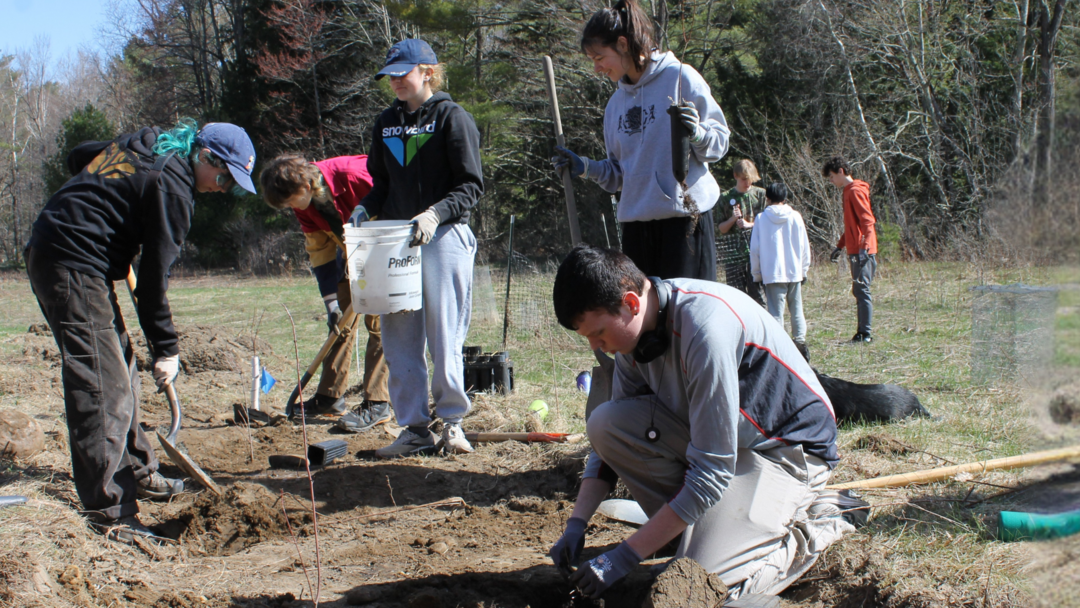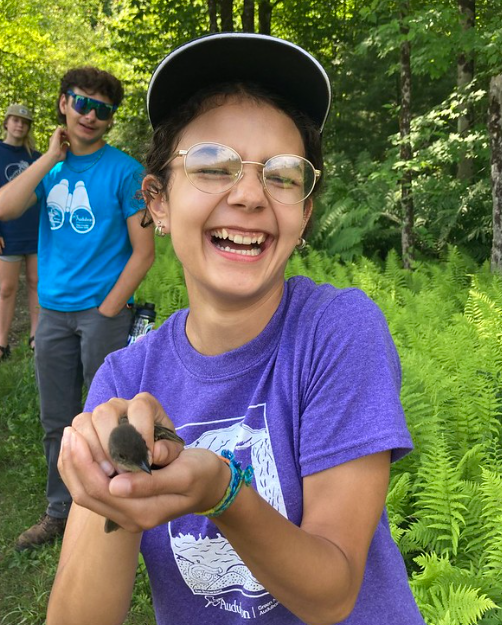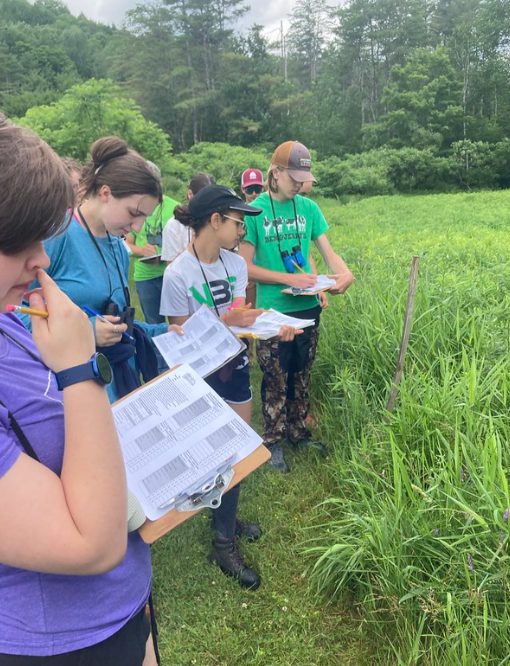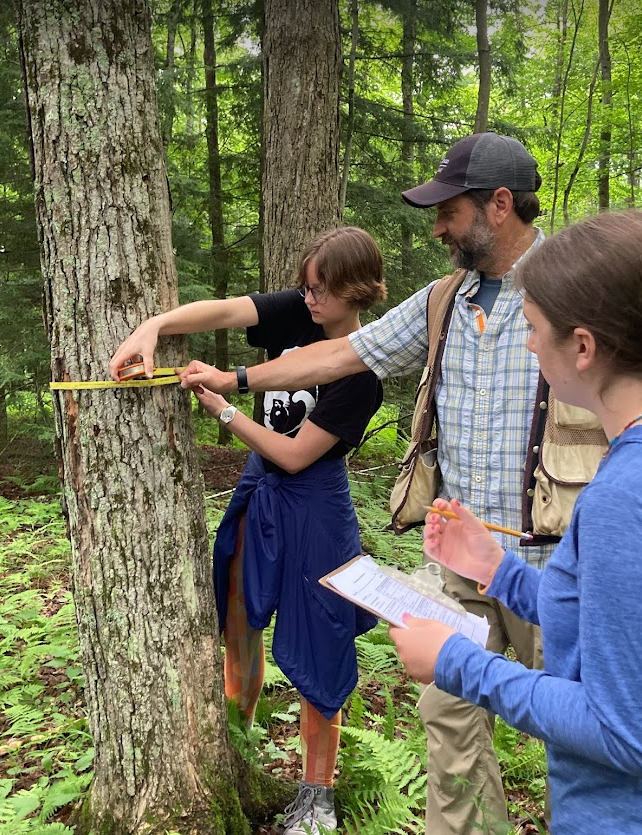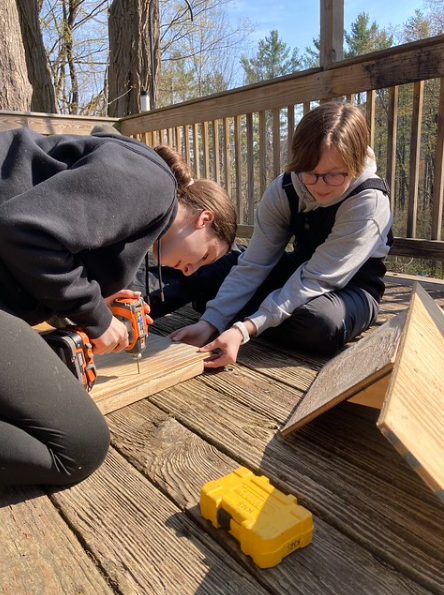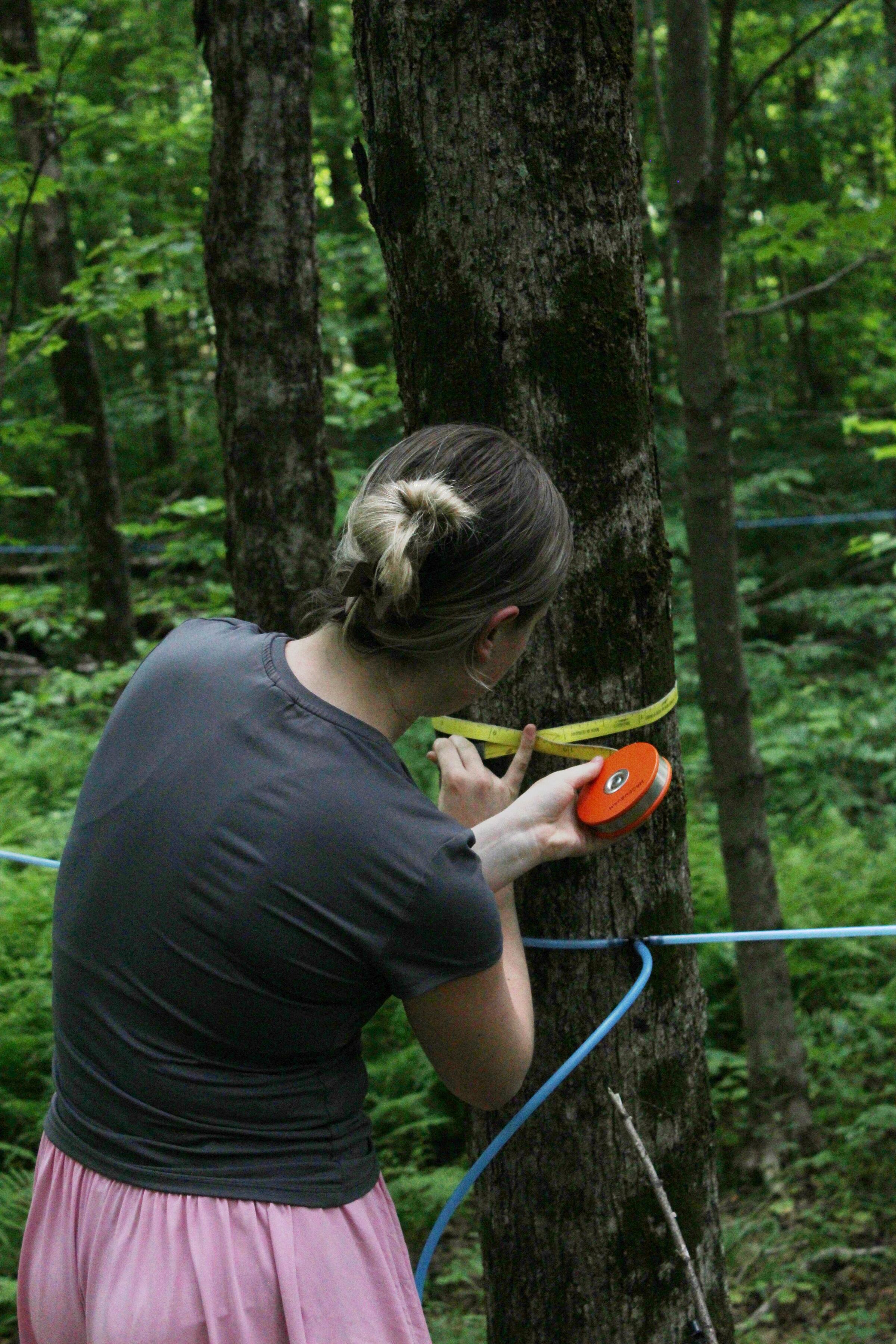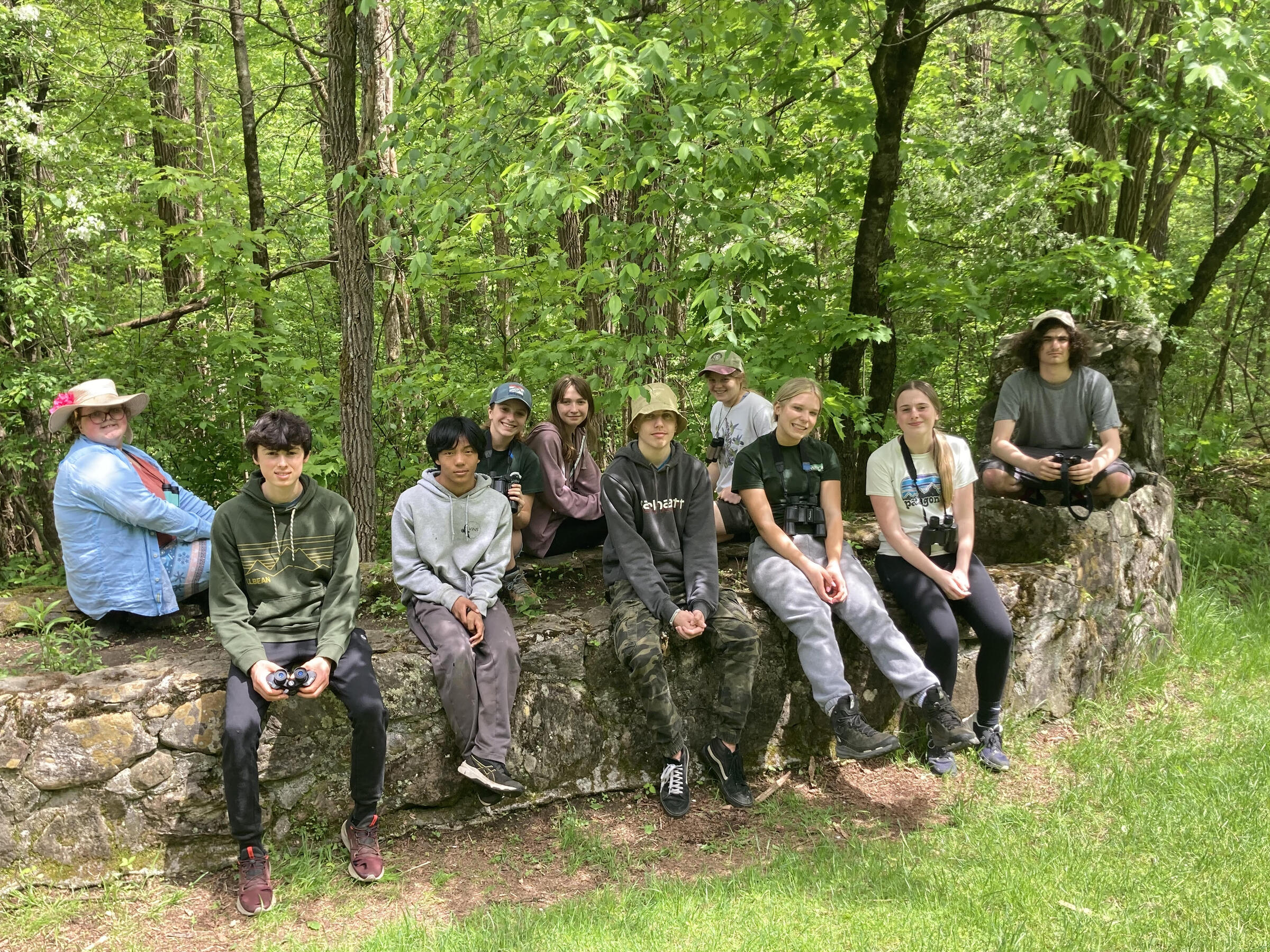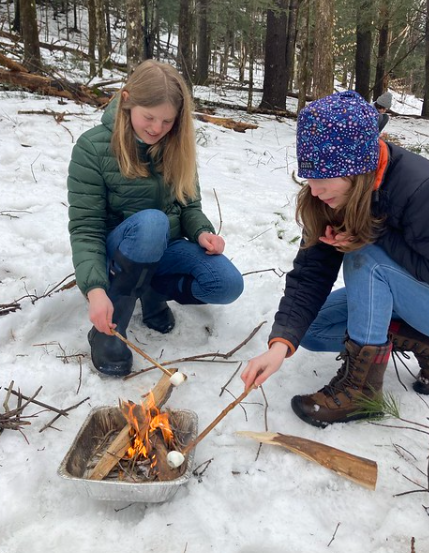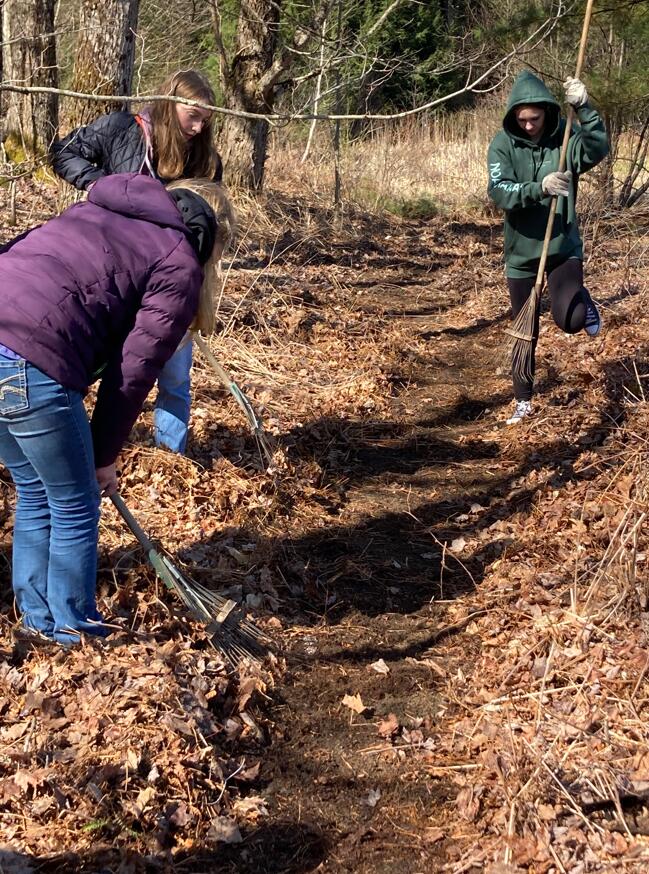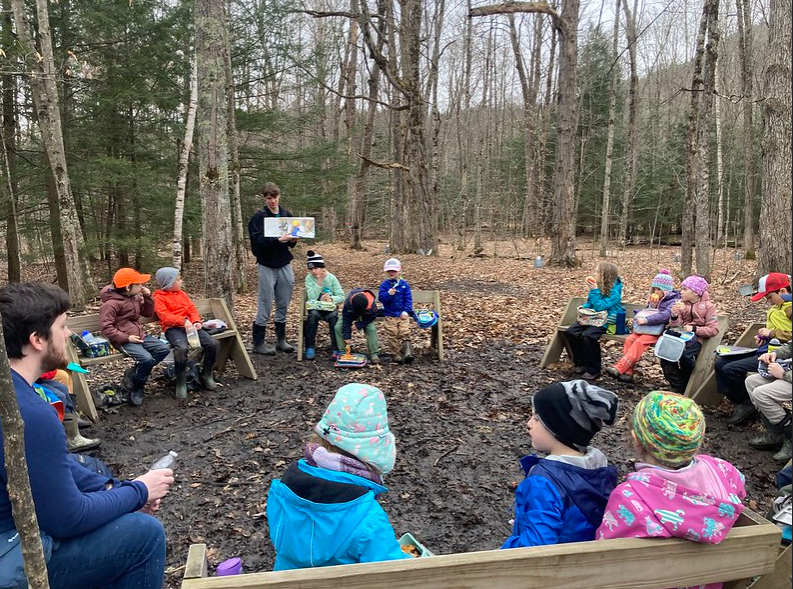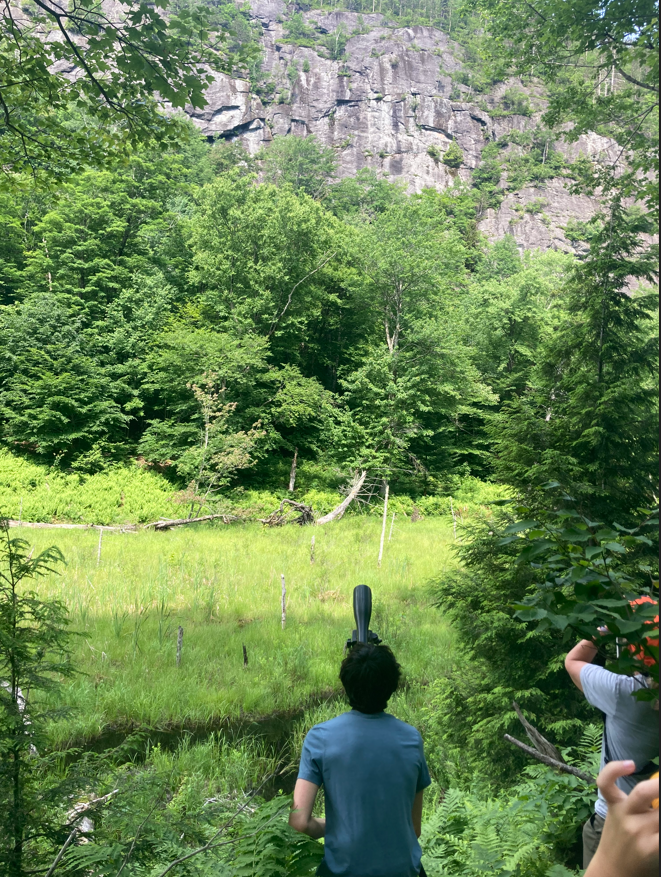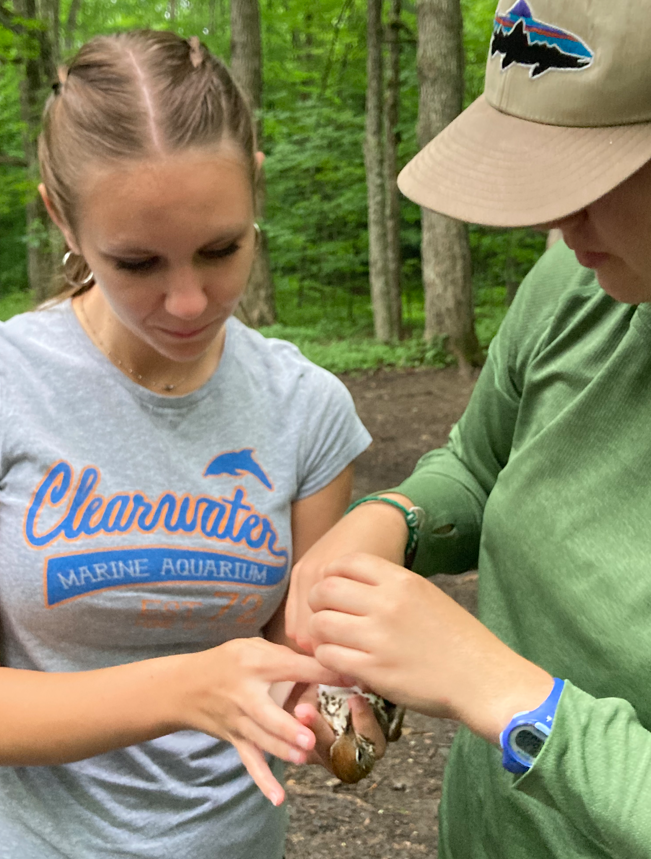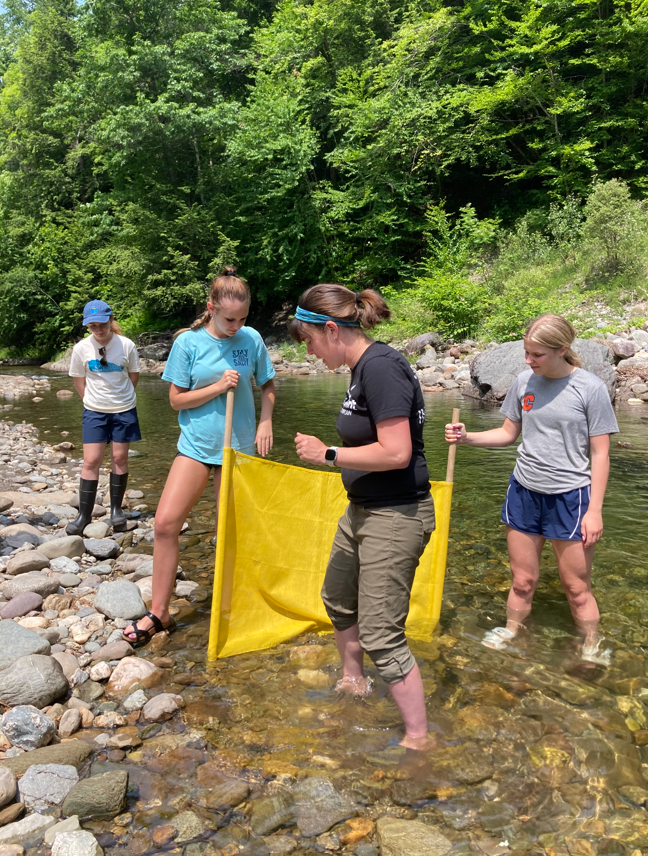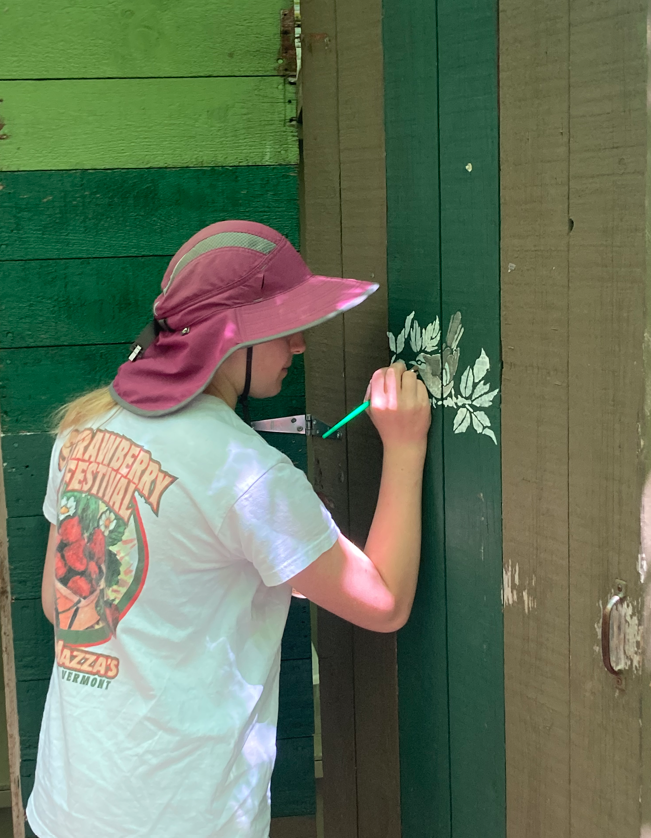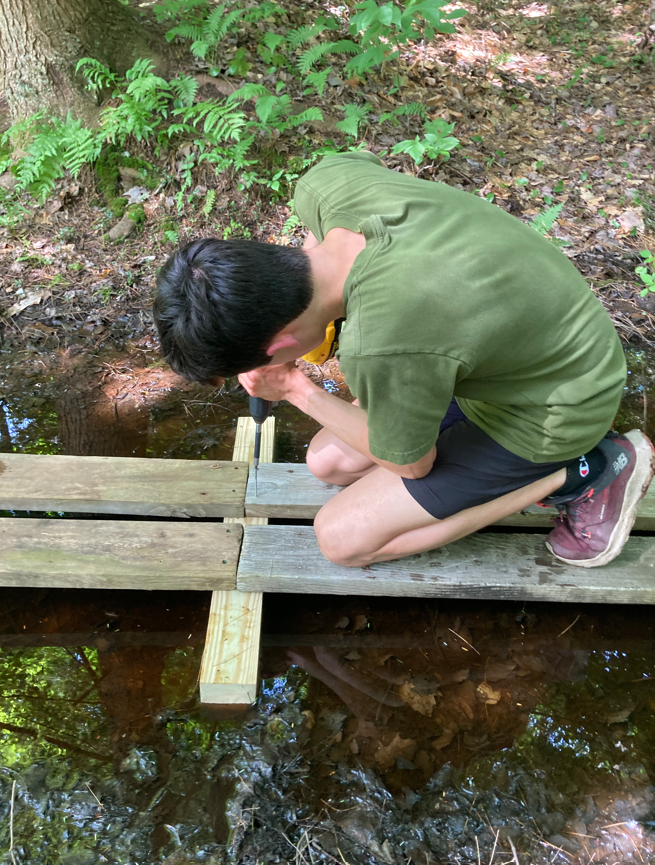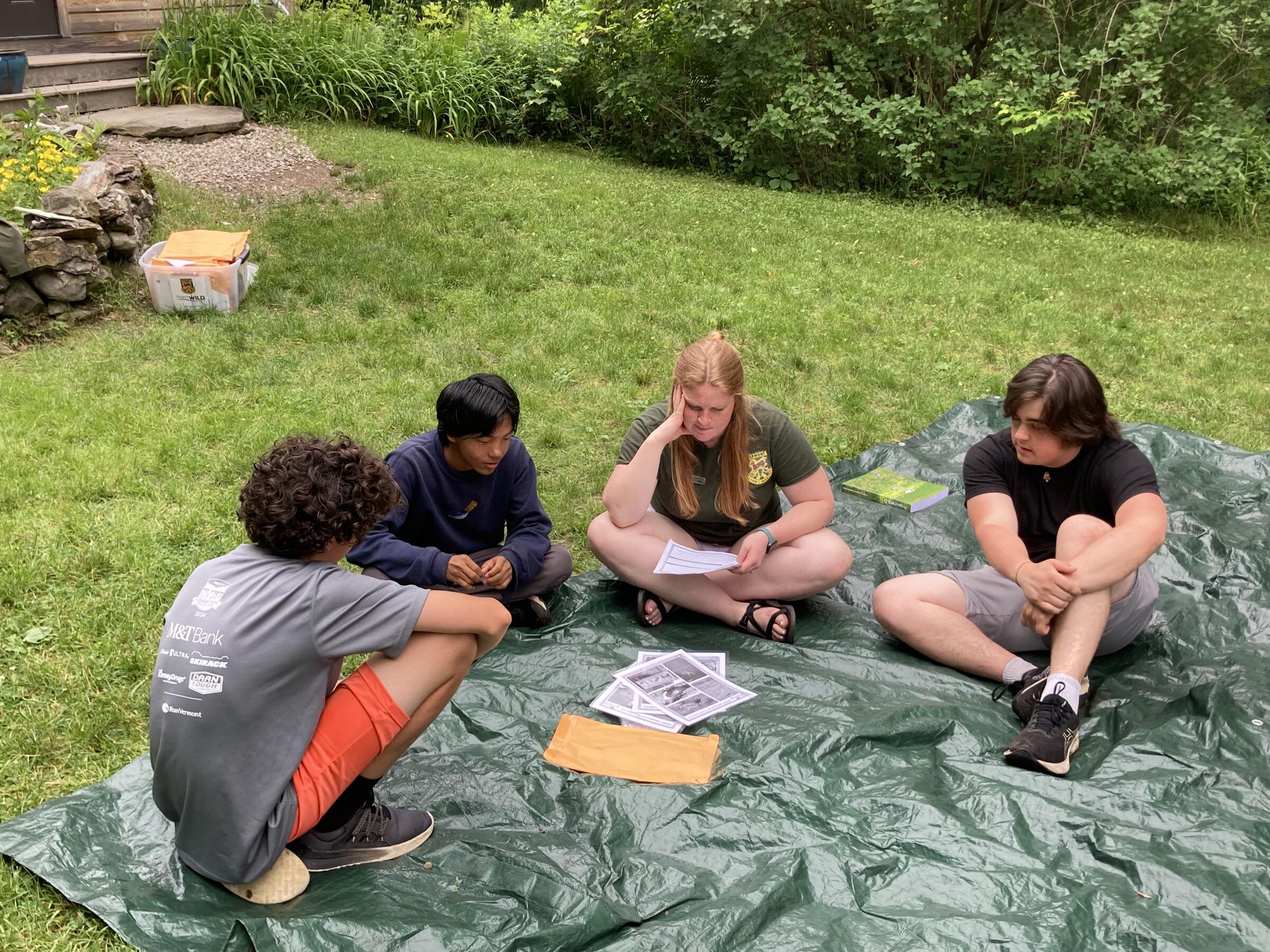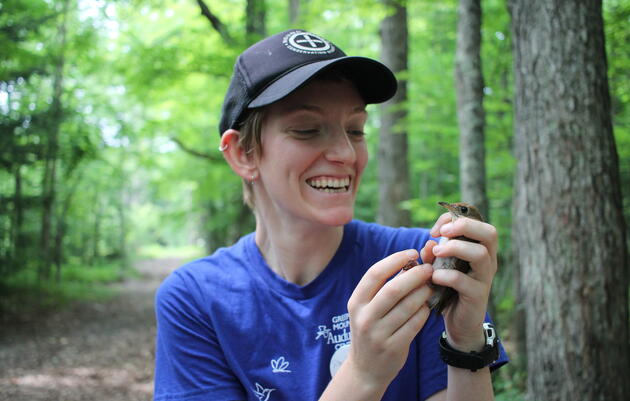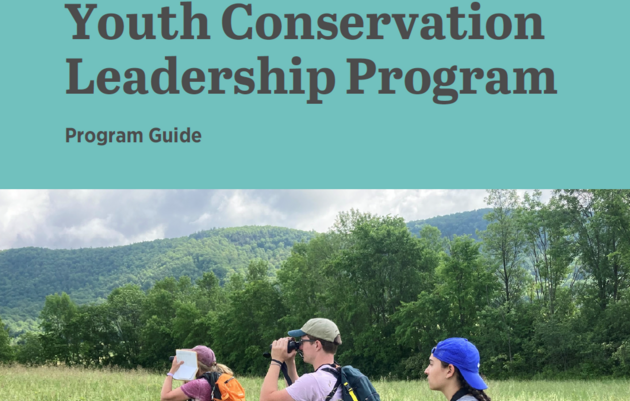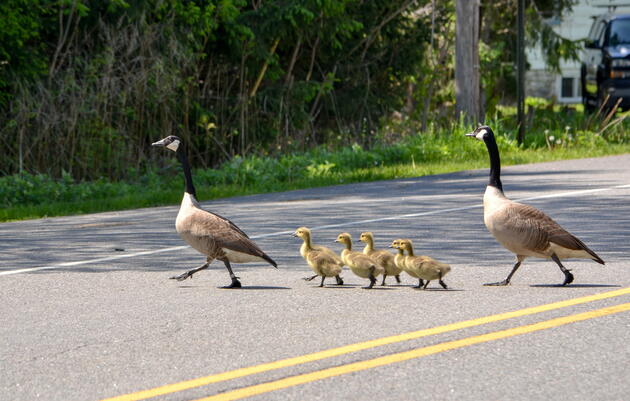The Junior Conservation Technician (JCT) Program is a paid opportunity for teens ages 14-18 to gain a deeper understanding of conservation action through hands-on experiences in the field at the Green Mountain Audubon Center. JCTs are mentored by our Youth Conservation Leadership Coordinator and work alongside local Vermont conservation heroes including foresters, wildlife biologists, environmental educators, ornithologists, naturalists, and more! The goal of this program is to provide professional learning experiences for teens in conservation and foster the next generation of conservationists. We meet every month from January-June during school breaks, occassional weekends, and virtually.
Applications are CLOSED.
Please visit our FAQ page to answer questions you may have about the program.
___________________________________________________________________________________________________________________________________________________
Who can Apply?
Junior Conservation Technician positions are for high-school youth (ages 14-18). We are not currently hiring.
___________________________________________________________________________________________________________________________________________________
Is the Junior Conservation Technician Program Right for You?
We're looking for candidates interested in:
- Outdoor/environmental education
- Wildlife and habitat conservation
- Field work and monitoring bird populations
- Science/nature writing and communications
- Building naturalist skills (Wildlife and plant ID, animal tracking, etc.)
- Teaching and mentoring younger kids
- Building teamwork, resume, and leadership skills
- Hiking (we will be moving around the center everytime we meet in all weather!)
Some projects may include, but are not limited to: bird banding, learning bird friendly forestry practices, trail management, collecting data for community science initiatives, leading projects and activities related to conservation for campers, caretaking native plant gardens, and removing invasive species. There will also be space for JCTs to work individually or in groups on their own projects around the Green Mountain Audubon Center.
___________________________________________________________________________________________________________________________________________________
What You Will Learn and Work On:
-
Assessing forest and timber stands at the Green Mountain Audubon Center alongside our forester.
-
Naturalist skills in: bird and wildlife identification, tree and plant identification, wildlife tracking, and more!
- Aid a wildlife biologist in banding birds at the Green Mountain Audubon Center and learn about recapture studies.
- Basic carpentry and powertool skills.
- Trail maintenance and enhancement.
- Conduct field work in and around the Green Mountain Audubon Center that allows us to understand population changes in priority bird species such as Bobolinks, Common Terns, and Peregrine Falcons.
-
Identify and remove invasive plant species to enhance bird habitat at the Green Mountain Audubon Center.
-
Collect data that will help scientists understand how wildlife and plants are responding to climate change through community science initiatives.
-
Serve as an assistant educator for vacation/summer camp staff when applicable.
-
Be part of a team and learn transferrable professional skills like resume building, public speaking, and leadership.
-
Share knowledge of bird-friendly forestry and maple sugaring during Audubon Vermont’s sugaring events (Sugar on Snow and Maple Open House).
___________________________________________________________________________________________________________________________________________________
Junior Conservation Technician Expectations and Responsibilities:
-
Having a good attitude and interest in the topics the program will cover.
-
Being a role model for students, campers and visitors at the center, exhibiting maturity and good judgment.
-
Willingness to work in a team environment.
-
Open and receptive to feedback.
-
Ability to hike long distances around GMAC (snow, rain, or shine).
-
Ready to learn!
___________________________________________________________________________________________________________________________________________________
Junior Conservation Technician Testimonies:
"I loved how it felt to spend an entire day outside in the woods with friends. The last time we met, we learned how to identify maples and tapped them, hiked around the Audubon, and kept an eye out for birds. Learning through experience is the best way to learn, so being able to experience nature and actually engage with what we're learning about has been a great boon to my understanding of nature in general. Overall, it's been an incredibly great time of getting outside and learning about our natural world!" - 2022 Cohort Member
“Being able to meet with renowned foresters and conservationists is a really cool opportunity that I don't see in many other places.” – 2023 Cohort Member
"By learning how to better identify trees, animal tracks, and bird songs I have felt more connected to Vermont's landscape. Now, by hearing certain birds I can infer what type of habitat is nearby. For example, if a common yellowthroat sings then I know where to find reeds or a clearing. Before the program, I felt like I didn't understand the temperate forest as well as I did the land in New Mexico where I last lived. Now I love both." - Alyssa, JCT 2024
"I have learned so much and met so many different people to use as resources throughout this experience, it has made me motivated to take a career in environmental science and conservation." – Eve, JCT 2024
___________________________________________________________________________________________________________________________________________________
How to Apply
___________________________________________________________________________________________________________________________________________________
Photo Library: What Does this Program Look Like?Related
Youth Conservation Leadership Program
Engaging young adults in conservation, education and policy
Youth Conservation Leadership Program Guide
Learn about our unique programs that offer paid, work-based and service-learning opportunities for youth 14-25.
Counselor in Training Program
Join our high school CIT program to build skills as an outdoor educator and naturalist!
How you can help, right now
Donate to Audubon
Help secure a future for birds at risk from climate change, habitat loss and other threats. Your support will power our science, education, advocacy and on-the-ground conservation efforts.
Visit Audubon
It's always a good time to visit the Audubon Center. Trails are open to the public year-round. Visit us daily from dawn until dusk! Donations are appreciated.
Events
Adults, preschoolers, foresters, photographers, sugarmakers and families will all find opportunities to connect with nature.


